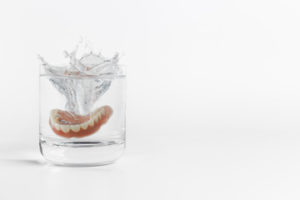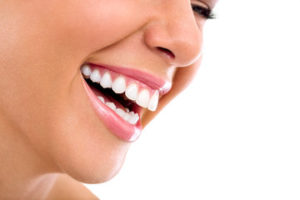 Dentures are a common solution for patients who are missing adult, permanent teeth in the smiles. But what are signs that you need them, and what types can you choose from? Dr. Kenneth Egger and his team in Mount Pleasant, MI, take the time to educate individuals on the many options available to them.
Dentures are a common solution for patients who are missing adult, permanent teeth in the smiles. But what are signs that you need them, and what types can you choose from? Dr. Kenneth Egger and his team in Mount Pleasant, MI, take the time to educate individuals on the many options available to them.
What are some signs that you might need dentures?
- Difficulty chewing or biting food
- Noticeable changes in your bite or jaw alignment
- Missing teeth or excessive tooth decay
- Regularly experiencing discomfort or pain in the mouth
- Noticeable changes in facial structure, such as sunken cheeks
- Increased irritation or soreness of the gums
- Frequent foul breath or a bad taste in the mouth
If you notice any of the above issues, it may be time to talk to Dr. Kenneth Egger and his team in Mount Pleasant, MI, about the benefits of dentures. Whether you use partial dentures or full dentures, he can assist in finding the right solution for your unique dental needs.
What types of dentures are available?
There are three primary types of dentures that might be considered after tooth loss or extractions. They include:
- Partial dentures. A partial denture replaces one or several teeth in the arch using an acrylic and metal appliance and false teeth that slide into place. The remaining teeth hold the partial in place and provide it stability to function properly.
- Full dentures. In some instances, patients who choose full dentures may need to have any remaining teeth extracted to prepare the smile for this new appliance. These dentures replace all of the teeth in the dental arch for full restoration of the smile.
- Implant-retained dentures. Alternatively, if patients need to replace all the teeth in the smile, they may want to ask Dr. Kenneth Egger about the advantages of implant-retained dentures. These are dentures that are more conservative and are held in place with dental implants along the arch.
Which type of denture is right for me?
Dr. Kenneth Egger is here to assist you in finding the restoration that works best with your smile. If you are looking to replace one or more teeth with a restorative dentist, call the office today at 989-773-3560 to request a visit at his Mount Pleasant, MI, area practice.







 Whether it is with or without anxiety, patients are always focused on their procedure. Maybe it’s a routine cleaning; perhaps it’s the need to have a filling placed. To keep everyone up to date, here’s a list of our most common services, treatments, and procedures at Dr. Egger’s practice.
Whether it is with or without anxiety, patients are always focused on their procedure. Maybe it’s a routine cleaning; perhaps it’s the need to have a filling placed. To keep everyone up to date, here’s a list of our most common services, treatments, and procedures at Dr. Egger’s practice. 
